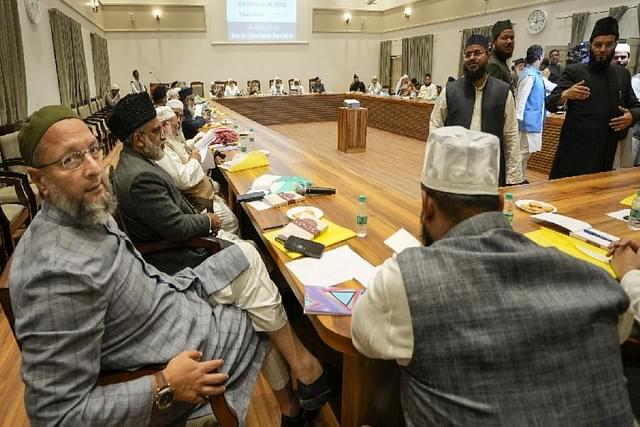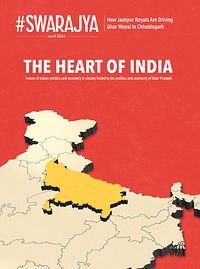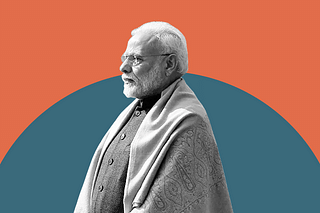News Brief
Muslim Personal Law Board Passes Resolution Against Uniform Civil Code, Calls It ‘Irrelevant’
Swarajya Staff
Feb 06, 2023, 11:56 AM | Updated 11:56 AM IST
Save & read from anywhere!
Bookmark stories for easy access on any device or the Swarajya app.

The All India Muslim Personal Law Board (AIMPLB) passed a resolution on Sunday (6 February) against the Uniform Civil Code (UCC) implementation, calling it “irrelevant” for a multi-religious country.
In a meeting held at Lucknow, officials of the body discussed various issues, including UCC and the Gyanvapi dispute among other things. The executive committee said that the UCC will deprive citizens of the “privileges” enjoyed by them under personal laws, which is against the “spirit of the Constitution”.
The Uniform Civil Code is a uniform set of laws governing all religions in matters of marriage, inheritance, etc., and is enshrined in the Article 44 of the Constitution under the Directive Principles of State Policy (DPSP).
Notably, DPSP enumerates a set of policies the Constitution makers wanted future governments to enact, and considered crucial for good governence in India.
“If taking advantage of its majority in Parliament, the ruling government passes and puts into effect the UCC, it will affect the unity and harmony that bind the nation. It will hinder the country’s progress and will not bear fruitful results,” the committee said.
The body also urged the Assam government to stop the arrests made in cases related to child marriages last week.
The Board also asked the government to respect the Places of Worship Act, 1991, and enforce it strictly, otherwise “it would lead to endless differences among various religious groups.” Notably, there was no mention of either the Gyanvapi mosque or the Krishna Janmabhoomi.
The meet was attended by All India Majlis-i-Ittehadul Muslimeen chief Asaduddin Owaisi along with 51 executive members of the AIMPLB.
Speaking on the Waqf Property issue, the board said “It is unlawful for any citizen or government to grab Waqf properties. The AIMPLB strongly opposes statements by some public representatives instigating action to deprive Muslims of their Waqf properties and appeals to the government to beware of such actions.”
The All India Muslim Personal Law Board was constituted by the then prime minister Indira Gandhi, to create strategies for the application of Muslim Personal (Shariat) Law in India and presents itself as the leading body of Muslim opinion in India.
However, it has been accused of acting as the “gatekeeper of Islamic law”, and has previously opposed the Triple Talaq judgment, gay rights, the Right to Free Education Act, and supporting child marriage at the age of 15.
It also opposed the making of yoga compulsory in school education, calling it the imposition of “Brahmin dharma” on Muslims.
AIMPLB also came up with the “model nikahnama” and urged Muslim women to go to Sharia courts instead of Family Courts. Sharia court divorces were recently declared void by Madras High Court.
Save & read from anywhere!
Bookmark stories for easy access on any device or the Swarajya app.
Introducing ElectionsHQ + 50 Ground Reports Project
The 2024 elections might seem easy to guess, but there are some important questions that shouldn't be missed.
Do freebies still sway voters? Do people prioritise infrastructure when voting? How will Punjab vote?
The answers to these questions provide great insights into where we, as a country, are headed in the years to come.
Swarajya is starting a project with an aim to do 50 solid ground stories and a smart commentary service on WhatsApp, a one-of-a-kind. We'd love your support during this election season.
Click below to contribute.





